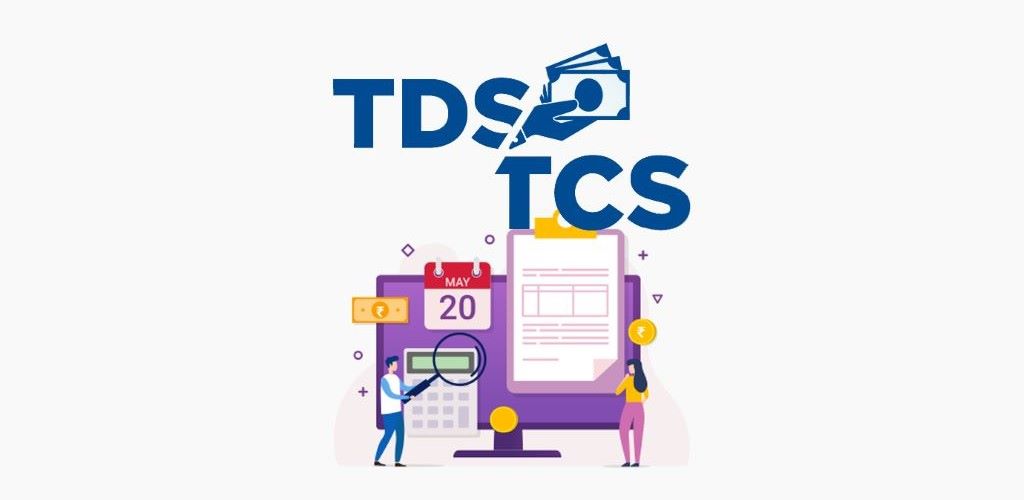In the ever-changing landscape of the Indian financial market, finding the best investment options for growing wealth is not an easy task. From traditional FDs and PPFs to modern financial instruments like ‘gold bonds’, there is a diverse range of investment options in India. This range of choices caters to the different preferences of risk profiles, investment horizons, and financial objectives.
Whether one seeks long-term capital growth, regular income streams, or a balanced portfolio, it’s important to understand the different investment choices present in the nation. Therefore, this post explores some of the best investment options in India, providing an overview of each option, its features, and potential benefits. It will also help you navigate through the investment landscape and make informed choices that match your financial aspirations.
Top Investment Avenues In India
Here are some of the best investment options in India:
Stocks:
Stocks, also known as shares or equity, represent ownership in a company. When individuals or institutional investors buy stocks, they essentially become partial owners (shareholders) of the company. This option stands out as one of the most dynamic investments, presenting a high-risk, high-return profile.
In case individuals wish to invest in stocks for the long term, they need both a bank account and a Demat account. Stock markets go up (bull markets) and down (bear markets) based on economic conditions, feelings of investors, and other factors. Before you start investing in stocks, it’s important to understand how they work and how the stock market operates.
Mutual Funds:
A mutual fund is an investment vehicle that combines the resources of multiple investors who pool their money to hire a professional manager or team. This manager or team (who are employed by an asset management company (AMC)) invests the money in different things, such as stocks, bonds, or other assets, to create a diversified portfolio.
Investors purchase units of the mutual fund, and the value of these units is determined by the net asset value (NAV) of the fund. Some mutual funds may charge fees known as entry or exit loads, particularly for short-term investments. In case an investor understands the market and its risks, mutual funds can become the best place to invest money in India.
Fixed Deposits:
Fixed Deposits (FDs) are special savings instruments offered by banks and other financial institutions. They offer a fixed interest rate on invested/deposited money for a set period. They are considered one of the best investment options in India in terms of safety and are popular among conservative investors who want to keep their money safe and get a steady income stream.
Fixed deposits have a fixed tenure, which can range from a few days to several years. The investor chooses the duration based on their financial goals and liquidity needs. The interest rate on fixed deposits is fixed at the time of investment and remains constant throughout the agreed-upon tenure. The rates can vary across banks and are influenced by market conditions and the Reserve Bank of India’s monetary policy.
Public Provident Fund:
PPF stands for “Public Provident Fund,” and it is designed to encourage small savings among individuals and provide them with a secure investment option. The PPF has a fixed tenure of 15 years. However, it can be extended in blocks of 5 years after the initial maturity period. The interest rate on PPF is set by the government and is subject to periodic revisions.
Investors can deposit a minimum amount per year, and the maximum investment limit is also defined. The minimum deposit can be as low as ₹500 and the maximum deposit per financial year is ₹1.5 lakh. The PPF is often considered a suitable investment option in India for long-term financial planning, especially for individuals looking for a combination of safety, tax benefits, and a disciplined savings approach.
Gold Bonds:
In India, gold is traditionally considered a safe and secure way to save and pass down wealth through generational chains. However, due to skyrocketing gold costs and additional making charges, purchasing gold has become difficult for many families. So, the Government of India (GOI) has issued ‘Gold Bonds’ as financial instruments.
These bonds offer a way for investors to invest in gold without physically owning it. The primary aim behind the launch of ‘Gold Bonds’ was to reduce the demand for physical gold and shift a part of the domestic savings used for the purchase of gold into financial savings. The interest rate is fixed and is determined and announced by the government at the time of issuance. The interest earned is taxable, but when you sell the bond, you don’t have to pay taxes for individual investors.
ULIPs:
ULIPs, or Unit Linked Insurance Plans, are considered one of the best investment plans in India that combine the benefits of life insurance and investment. These plans offer a dual advantage by providing life insurance coverage along with the opportunity to invest in various financial instruments such as stocks, bonds, or mutual funds. A portion of the premium goes toward providing life insurance, while the remaining amount is invested in selected funds based on the policyholder’s risk appetite.
ULIPs come with a lock-in period, during which the policyholder cannot surrender or withdraw the invested amount. The lock-in period is usually five years. After the completion of the lock-in period, policyholders may make partial withdrawals from their fund value for liquidity needs. Since ULIPs provide a combination of insurance coverage and wealth creation, they are suitable for individuals seeking a holistic financial product. However, it’s essential for investors to carefully understand the terms and conditions, charges, and fund performance before investing in ULIPs.
Post Office Savings Schemes:
With the equity market being unpredictable lately, investors are actively searching for stable and safe financial instruments. In such a scenario, “Post Office Saving Schemes” has emerged as the best investment option in India that provides both monetary protection and reasonable returns. These traditional investment products are highly regarded by investors due to their government-backed nature, offering a sovereign guarantee against market unpredictability.
These accounts offer options for fixed or recurring deposits, and they come with attractive fixed interest rates. They prove highly advantageous for investors as they provide a secure means to earn a fixed interest on their deposited amount at regular intervals. Here’s a list of all post office savings schemes in India:
- Post Office Savings Account (SB)
- National Savings Recurring Deposit Account (RD)
- National Savings Time Deposit Account (TD)
- National Savings Monthly Income Account (MIS)
- Senior Citizens Savings Scheme Account (SCSS)
- Public Provident Fund Account (PPF)
- Sukanya Samriddhi Account (SSA)
- National Savings Certificates (VIIIth Issue) (NSC)
- Kisan Vikas Patra (KVP)
- Mahila Samman Savings Certificate
- PM CARES for Children Scheme, 2021
Government Bonds:
In India, government bonds are debt securities issued by the Government of India. In simpler terms, they are like loans that the government takes from people to raise funds for various purposes, such as running the nation, managing finances, and building infrastructure. These bonds are considered low-risk investments because they are supported by the Indian government. The government issues bonds through the Reserve Bank of India (RBI) and conducts auctions to raise funds from investors.
Government bonds in India have different maturity periods, ranging from short-term ‘Treasury Bills’ (less than one year) to long-term dated securities with maturities extending up to 40 years. Interest is paid periodically, usually semi-annually, and the principal amount is repaid at maturity. Government bonds play a crucial role in India’s financial markets and serve as benchmarks for interest rates in the broader economy. They provide a stable, secure, and best place to invest money in India for various investors, including those looking to earn income, keep money safe, and have a diversified portfolio.
ETFs:
ETFs or Exchange-Traded-Funds are similar to individual stocks, which one can buy or sell on stock exchanges. They combine features of both mutual funds and stocks, offering investors a diversified investment option that follows an index, bond, commodity, or group of assets. They have become one of the best investment options in India for their flexibility, liquidity, and cost-effectiveness.
The number of shares in an ETF can change based on demand. This type of investment can follow different management styles, including passive management (index-tracking) and active management (strategies decided by the fund manager). ETFs provide investors with a cost-effective way to gain exposure to a diverse range of asset classes. They are suitable for various investment strategies, including long-term investing, trading, and hedging.
Foreign Exchange:
Foreign exchange (forex) investment refers to the buying and selling of currencies in the foreign exchange market to make a profit. In India, individuals and institutional investors can participate in forex trading through authorized dealers, banks, and financial institutions. However, it’s important to note that retail forex trading for individuals is regulated by the Reserve Bank of India (RBI) and there are specific guidelines and restrictions in place.
Residents are allowed to trade in only a limited set of currency pairs. The RBI periodically issues circulars to update regulations related to forex trading. The forex market operates 24 hours a day, five days a week due to the global nature of currency trading. This allows investors to trade at almost any time, providing ultimate flexibility.
Real Estate Investments:
Real estate is another best investment option in India, which involves the acquisition, ownership, management, and/or development of properties with the primary goal of generating income, income growth, or a combination of both. Real estate is a physical asset that includes residential, commercial, industrial, and retail properties. Investors in real estate can take various approaches, such as buying physical properties, investing in real estate investment trusts (REITs), or participating in real estate crowdfunding platforms.
Real estate is a long-term investment that requires careful consideration of factors such as location, market trends, and the investor’s financial goals. It offers the potential for both income generation and wealth growth, but investors should be aware of the complexities and risks associated with this asset class.
RBI Bonds:
RBI bonds are a type of government savings bond issued by the Reserve Bank of India (RBI). These bonds are designed to provide individuals with a secure investment option while contributing to the government’s borrowing program. They are non-transferable and non-negotiable debt instruments issued to retail investors. They have a specified tenure, typically for 7 years, depending on the series. The investor receives the principal amount along with the accumulated interest at the end of the maturity period.
RBI bonds are open to individual investors, including resident individuals, Hindu Undivided Families (HUFs), and eligible charitable institutions. Non-resident Indians (NRIs) are not eligible to invest in these bonds. Also, premature withdrawal is allowed under certain conditions, subject to payment of applicable penalties. However, early withdrawal is generally restricted before the completion of six years.
How To Choose The Right Investment Option In India?
Choosing the right investment option in India requires careful consideration of various factors, including your financial goals, risk tolerance, time horizon, and liquidity needs.
Here are steps to help you make informed decisions:
- Assess Your Risk Tolerance: Understand your risk tolerance, which refers to your ability to withstand fluctuations in the value of your investments. If you have a higher risk appetite, you may be open to investing in volatile assets like stocks or equity funds. On the other hand, if you have a lower risk tolerance, you may prefer more stable options such as fixed deposits or debt funds.
- Define Your Financial Goals: Clearly outline your short-term, medium-term, and long-term financial goals. These could include buying a house, funding education, saving for retirement, or building wealth.
- Diversify Your Portfolio: Diversification helps spread risk by investing in different asset classes. Consider a mix of equity, debt, and other asset classes to create a diversified portfolio.
- Analyze Historical Performance: While the past performance of an investment option does not guarantee future returns, it can help investors see if the option can handle fluctuations in the market and figure out how risky it might be to invest in it. Thus, it’s important to analyze factors such as average returns, quality of returns, consistency, and any periods of underperformance in the past.
- Evaluate Tax Implications: Consider the tax implications of your investments. Some investment options offer tax benefits, while others may have tax consequences. Understand the tax treatment of interest income, capital gains, and dividends.
- Keep Inflation In Mind: Consider the impact of inflation on your investments. Choose options that have the potential to outpace inflation, ensuring that your purchasing power remains intact over time.
- Educate Yourself: Take the time to understand different investment options, including stocks, mutual funds, fixed deposits, real estate, and government schemes. Educate yourself on the risks, returns, and features of each option.
Conclusion
In conclusion, finding the best investment options in India requires a thoughtful and personalized approach. Each investment avenue comes with its own set of pros, risks, and considerations. So, a comprehensive understanding of the various investment options in the market is essential for making smart decisions.
Whether one goes for the realm of stocks, the stability of fixed-income instruments, the potential of real estate, or the convenience of mutual funds, the key lies in aligning investment choices with an individual’s risk appetite, financial goals, and time horizon. As the investment landscape evolves, staying informed and adapting to changing market conditions will help investors make wise decisions with their money.








